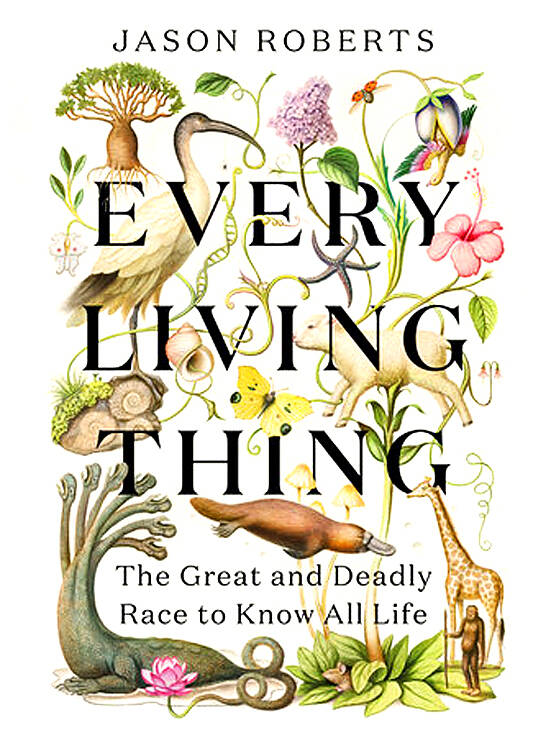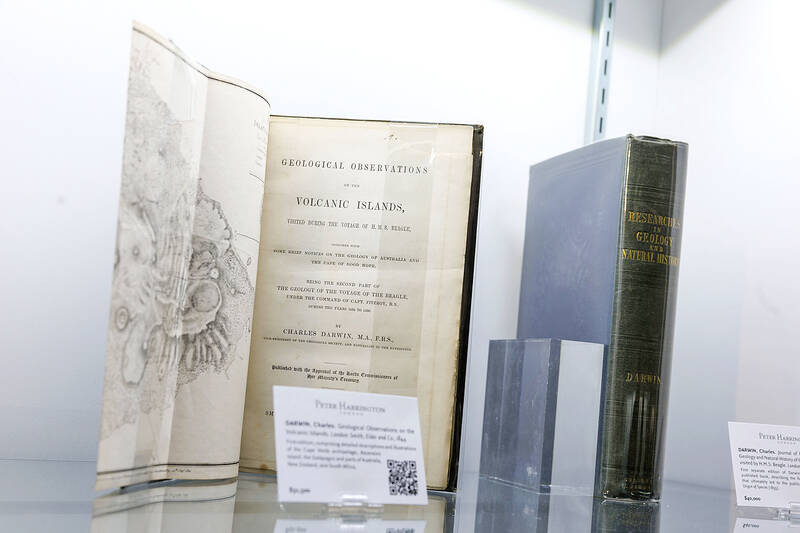Shortly after Charles Darwin published his magnum opus, The Origin of Species, in 1859 he started reading a little-known 100-year-old work by a wealthy French aristocrat. Its contents were quite a surprise. “Whole pages [of his book] are laughably like mine,” Darwin wrote to a friend. “It is surprising how candid it makes one to see one’s view in another man’s words.”
In later editions of The Origin of Species, Darwin acknowledged Georges-Louis Leclerc, Comte de Buffon, as one of the “few” people who had understood that species change and evolve, before Darwin himself.
‘THE FIRST ECOLOGIST’

Now a new book will attempt to shine a light on the French naturalist’s extraordinary achievements and groundbreaking ideas, which date back to the 1740s. “Buffon was one of the very first people to postulate the change of species over time,” said Jason Roberts, author of a new book, Every Living Thing, which will be published today.
“He did not call it evolution — that word was coined later — but he was one of the first people to talk about it and suggest there was some kind of system.”
In Histoire Naturelle, a 36-volume book Buffon worked on for 50 years, he also put forward the idea that animals were becoming extinct at a time when most natural historians believed that “God would never allow any species to ever disappear or arise over time,” according to Roberts. “The concept of species change and extinction was very controversial.”

Photo: EPA
Similarly, Buffon’s observations about reproduction anticipated the discovery of DNA: “He suggested there had to be some kind of internal shaping mechanism — that life exists on an organic cellular level and there has to be some kind of recipe or ‘internal mould’ that reproduction follows, to assemble the building blocks of cells into a particular kind of organism.”
After inheriting a fortune from a distant relative, equivalent to about US$35 million today, Buffon used some of his wealth to turn a 100-acre park he owned in Burgundy into an “environmental laboratory,” where he “let things go wild and then observed what happened,” Roberts said.
“He has actually been described as the world’s first ecologist, because he was the first person to really study a species in its own environment, and not just a specimen of a dead organism.”
Buffon observed everything that happened in his park, from the breeding habits of the foxes to the patterns of the birds and the trees they chose to nest in. “He was the first scientist to study life in its context and make live contextual observations,” said Roberts. “He would pay huge amounts of money for specimens of live animals so he could see them and interact with them.”
Instead of evolution, Buffon used the term “degeneration” to refer to a natural process “outside the regular reproductive process” that brought about change to a species. The term did not have negative connotations at the time.
But Buffon never figured out how this species change actually took place: it took Darwin, and his theory of natural selection, co-developed with Alfred Russel Wallace, to shed light on the process.
NATURAL HISTORY
Even without this key insight, Buffon postulated that new species must have come into existence and changed over time, while some species must have gone extinct. “That was a very, very radical idea at the time, and Buffon was censured for it by the Sorbonne: he had to write a statement publicly renouncing everything he had written,” said Roberts. Buffon was later formally accused of heresy for implying that Earth was older than the biblical record.
“Buffon suspected it was a matter of millions, if not billions, of years,” said Roberts. “He pioneered the idea of time on a geological scale.”
Unlike his contemporary Carl Linnaeus, who believed that nature was static and every species had stayed exactly as God created them, Buffon believed nature was too complex and changeable to be easily categorized.
He was even concerned about the impact of human-caused climate change. “Buffon had enemies, because his message — that nature cannot be conquered, that humans were, in fact, part of nature — was essentially disconcerting to other people.”
Roberts said he quickly realized that the world wasn’t receptive to his ideas. “He would make a statement like: ‘For species to change, one must imagine that the earth is millions of years old,’ hoping that one day people would be ready to hear that. But then he would have to add a sentence: ‘But of course, that’s ridiculous speculation. The Bible tells us otherwise.’”
Since Buffon had to keep undermining his own observations, it was easy for Victorian naturalists to brush aside his contributions, suggesting — as Darwin did — that Buffon’s opinions “fluctuated greatly.”
Roberts hopes his book will help to reassert Buffon’s rightful place in history: “The outrage that greeted Darwin in 1859 is well known,” he said. “Imagine if those ideas had been asserted in 1759.”

Climate change, political headwinds and diverging market dynamics around the world have pushed coffee prices to fresh records, jacking up the cost of your everyday brew or a barista’s signature macchiato. While the current hot streak may calm down in the coming months, experts and industry insiders expect volatility will remain the watchword, giving little visibility for producers — two-thirds of whom farm parcels of less than one hectare. METEORIC RISE The price of arabica beans listed in New York surged by 90 percent last year, smashing on Dec. 10 a record dating from 1977 — US$3.48 per pound. Robusta prices have

A few years ago, getting a visa to visit China was a “ball ache,” says Kate Murray. The Australian was going for a four-day trade show, but the visa required a formal invitation from the organizers and what felt like “a thousand forms.” “They wanted so many details about your life and personal life,” she tells the Guardian. “The paperwork was bonkers.” But were she to go back again now, Murray could just jump on the plane. Australians are among citizens of almost 40 countries for which China now waives visas for business, tourism or family visits for up to four weeks. It’s